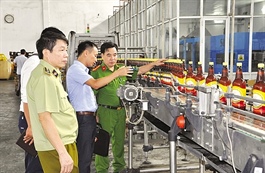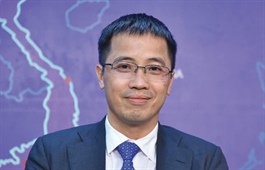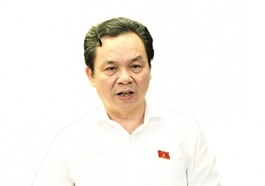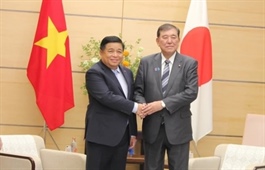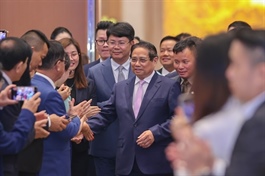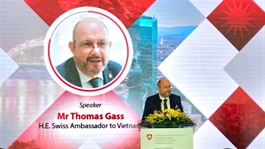German investment inflows to maintain momentum
German investment inflows to maintain momentum
Business and investment ties between Vietnam and Germany are expected to enter a new phase of development, following on from the 50-year journey experienced so far. Alexander Ziehe, chairman of the German Business Association, talked to VIR’s Minh Anh about what lies ahead.
How could you describe the state of bilateral business and investment cooperation after 50 years of bilateral ties and 30 years of the association?
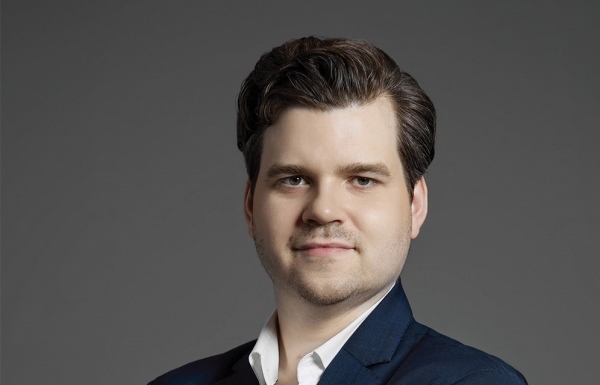
Alexander Ziehe, chairman of the German Business Association |
Vietnam remains a highly attractive destination for German investors. According to the Spring 2025 AHK World Business Outlook, 80 per cent of German companies in Vietnam rated their current business situation as good or satisfactory. Furthermore, 38 per cent plan to increase their investment, and 43 per cent expect to grow their workforce in 2025.
We observe strong interest in renewable energy, high-tech manufacturing, automation, and vocational training. With the EU-Vietnam Free Trade Agreement and Vietnam’s improving infrastructure, many German companies see the country as a strategic base for regional operations. Vietnam offers a compelling mix of economic dynamism, policy reform, and geopolitical relevance.
The German Business Association (GBA) has actively supported German businesses not only in entering the Vietnamese market but also in navigating complex policy frameworks, establishing strong partnerships, and fostering a culture of innovation and sustainability. Today, with over 400 members, we are one of the largest and most active foreign business associations in Vietnam.
What are the main challenges that German companies in Vietnam currently face, and what lessons can be drawn from successful German companies?
While the outlook is positive, we must acknowledge several persistent barriers. They include regulatory inconsistencies and overlapping legal provisions that create uncertainty; cumbersome administrative procedures and prolonged customs clearance; a shortage of skilled labour in manufacturing and technical fields; unclear guidelines on localisation and investment licensing; and external shocks such as tariff changes from global partners.
We continue to advocate for greater transparency, simplification, and consistency to ensure a more predictable and enabling business environment.
German companies that have succeeded in Vietnam share common traits: long-term commitment, strong local engagement, and an emphasis on quality and sustainability. Firms like Ziehl-Abegg, Kärcher, and Südwolle Group have expanded significantly in recent years, underscoring the viability of the Vietnamese market.
My advice to new investors is to take a long-term view, understand the regulatory landscape, and work closely with local partners. Engaging with platforms like the GBA can also provide critical insights, advocacy support, and community access.
What percentage of German enterprises are currently affected by US tariffs, and if retaliatory tariffs are reduced, albeit slightly, how would that impact German businesses in Vietnam?
According to the latest AHK World Business Outlook 2025, the majority of German companies in Vietnam have not yet been directly affected by the new US tariffs.
On the other hand, several key foreign projects in Vietnam were based on the country’s attractive role as a global export hub. In particular, in the fashion and consumer goods industry, we have received negative feedback within the German community. However, 54 per cent of members still expect their business situation to improve in the next 12 months, reflecting cautious optimism amid ongoing uncertainties.
If the tariffs are only slightly reduced, German businesses may still face challenges in pricing, supply chain continuity, and investment planning. Some firms report being indirectly affected, particularly those whose partners or suppliers are heavily engaged with the US market.
German companies have responded with flexibility. Many are reorienting exports towards Europe to leverage benefits from free trade, while others are reassessing supply chains to reduce reliance on the US market.
Vietnam still offers a strong platform for regional and global growth thanks to the local supply chain, free trade deals, administrative reforms, and a motivated and well-trained workforce. German companies are also exploring opportunities to expand their presence in the local market, addressing the rising buying power of the emerging Vietnamese middle class.
Despite the global headwinds, German firms have expanded operations in Vietnam, demonstrating their long-term confidence in the country’s strategic value. Brands like Mercedes, Hettich, Häfele, and WMF continue to invest in their brand building and local distribution.
What trends do you foresee for Vietnam-Germany cooperation in the future, especially in innovation, renewable energy, high-tech manufacturing, and digital transformation?
We are entering a new chapter in the bilateral relationship, and cooperation will likely centre around innovation, green growth, and digitalisation. German businesses are already contributing to Vietnam’s sustainability goals through investments in clean energy, Industry 4.0, and circular economy models.
Germany’s dual vocational training model is being implemented in Vietnam to help upskill the workforce, an essential element for the country’s continued competitiveness.
Looking ahead, the GBA will focus on deepening public-private dialogue to address policy and operational challenges, expanding our reach to provinces beyond Hanoi and Ho Chi Minh City, encouraging environmental, social, and governance considerations, and promoting digital transformation among our members. This goes along with organising high-impact events such as the GBA Business Awards, German Ball, and Oktoberfest to connect, recognise, and celebrate the community.
- 09:00 03/06/2025







